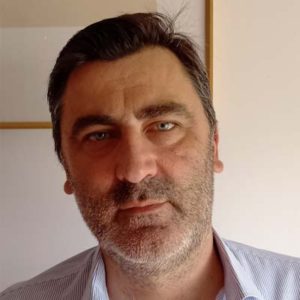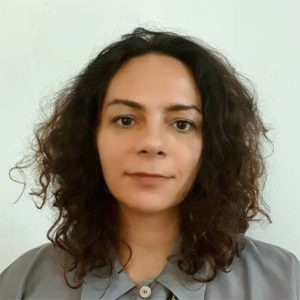Wednesday, 28 July 2021
All times are CEST
Pilot project presentations: Edições Urbanas – Frame Colectivo
Speakers meeting link: https://bit.ly/36uVRwF | Meeting attendants: Facebook live at https://www.facebook.com/designscapesproject/
- 17:30-17:45 Welcome and introduction
(Antonio Quintao, AMAVE) - 17:45-18:15 Presentation of the pilot project
(Agapi Dimitriadou) - 18:15-18:30 Q&A and Discussion (*)
- 18:30 End
(*) Other winners of the Designscapes call with similar thematic orientation will be invited to contribute
Our speakers

António Quintão, Oporto (Portugal) 1973. Did most of his studies in Vila Nova de Famalicão (Portugal). Between 1992 and 1999 attended the University of Algarve (Portugal), where obtained the degree of Environmental Engineer. From 1999 to 2000, collaborated with the Ave Technical Support Office, an agency of the Northern Region Coordination Commission. From 2000 to 2014 was a senior engineering technician at AMAVE-Association of Municipalities of Vale do Ave, having worked in several areas, including the management of urban waste in the region, which houses around 500,000 people. Participated in several projects linked to European funds, including INTERREG. From 2014 to the present, has been the General Secretary of AMAVE and, inherently, collaborates with ACTE – Association of European Textile Collectivities, of which he is treasurer.

AGAPI DIMITRIADOU (1983) is a Greek architect, co-founder of Frame Colectivo and president of Frame Matters. Born in Thessaloniki, she got her diploma from the Technical University of Berlin, Germany (2007) where she integrated research groups on collective building in Mexico, Brasil, Greece and the U.S.A. She collaborated with GRUPPE Planwerk (Berlin, 2009-2013) focusing on urban development and planning of middle scale cities, urban infrastructure, accessibility and rehabilitation of public spaces. Since 2013, as lead architect of Frame Colectivo, she moved her practice to Lisbon, Portugal where she implements collaborative, community-driven building workshops, art installations and urban research projects. Her work has been funded and supported by both public and private institutions such as the Municipality of Lisbon, Municipality of Almada, Ministry of Culture Portugal, Ciência Viva, Calouste Gulbenkian Foundation, Designscapes a.o. She is a member of further cultural and social associations active in equal housing rights, LGBTQPIA+ rights, refugee rights and anti-racism groups.
FULCRUM emphasizes the embedded value of crafting know-how and the potential of bringing together the motivation of European newcomers and centuries-old techniques that characterize local manufacture.
FULCRUM developed a design process that reimagines objects’ manufacture in an urban environment, as well as bridging between Sicilian culture and the migrants’ one through a co-design production cycle, mingling migrants’ and local heritage, and an Archive of knowledge that collects natural materials and techniques used in crafts worldwide.
Reconstructing the process of creation of material culture means to value migrations as a regenerative phenomenon and create innovative development models for peripheral territories. Through this process, we are outlining a design production alternative and reframe functions and interaction with crafts, which are otherwise threatened to disappear on an urban level.
FULCRUM collects and archives knowledge about materials and techniques that are barely even mentioned in design literature and that could be applied in the context of Palermo Palermo as a reference and an inspiration for boosting the development of new enterprises. The experimental furniture is the tangible result of the methodology we applied, based on social interaction and driven by design thinking, which creates a multilayered process reclaiming the materiality of the outcome, both to reach a wider audience and to gain an autonomous economical dimension over time.
An Archive of sustainable techniques and materials was realized as the first draft of an open collaborative database, a repository that spans from engineering information to ethno-anthropological meanings.
The successful realization of high-quality design prototypes is the core aim of FULCRUM: they represent the inputs of migrants and asylum seekers who participated in the project, they show the possibility for traditional crafts to renovate themselves and they suggest the role that design thinking must-have in this process of social inclusion. The participants were able to have an income from the creative activity in FULCRUM allowing them to inquire about the possibility of undertaking these professions or even start their own enterprise.
The objects produced were envisioned to create a community space and show-room, a place for the public to visit, to host events, and commission further productions. Creating a convivial environment and an open workshop in Palermo has a great social relevance: allowing equality in interactions based on cultural exchange and becoming a landmark for both migrant communities and creative ones.
FULCRUM aims to create a network of centers that can welcome and catalyze the know-how from marginalized cultures and can express their potential and dignity, design productions giving shapes to material culture, and making possible the transfer of knowledge.
